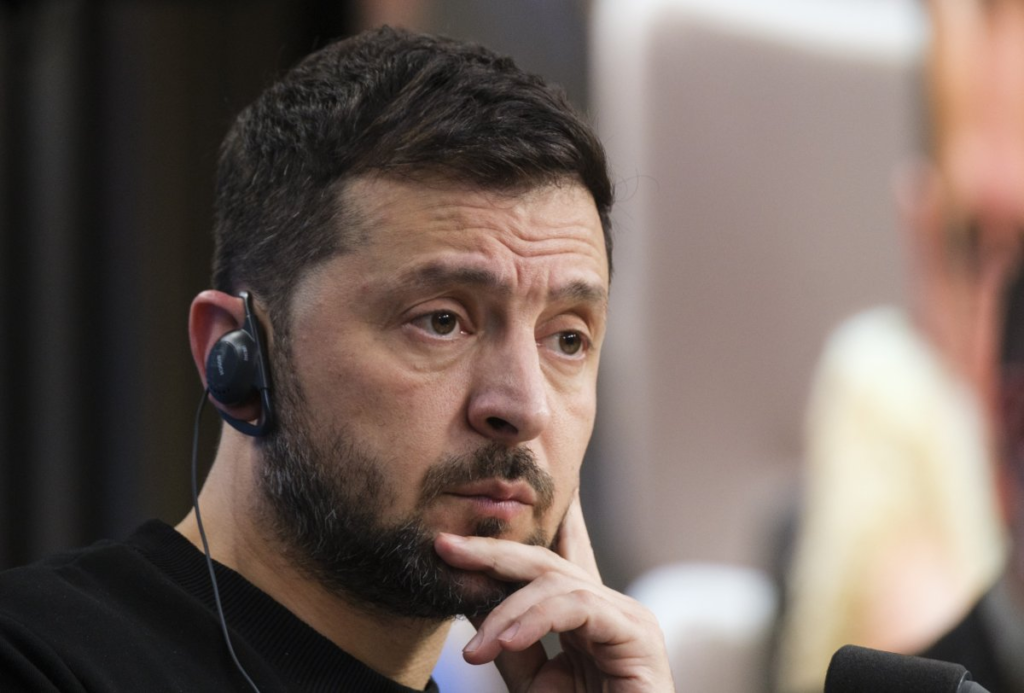Ukrainian President Volodymyr Zelensky has raised alarms about the potential consequences for Europe if the United States were to pull out of NATO. According to Zelensky, the absence of U.S. support within the alliance could leave Europe exposed to Russian aggression, putting the region’s security at risk.
This warning comes at a time of rising geopolitical tensions, particularly between NATO and Russia, and highlights the fragile nature of European stability amid ongoing conflicts such as the war in Ukraine. Zelensky’s statement is a stark reminder of the crucial role NATO and the U.S. play in maintaining peace across Europe.
The Role of the United States in NATO’s Strength
NATO, formed in 1949, has long been a cornerstone of Western security, providing collective defense against adversaries. The United States has been a pivotal member of NATO, contributing significant military resources, political leadership, and strategic direction.
The alliance has relied on U.S. support, particularly in deterring potential aggressors like Russia, and maintaining NATO’s cohesion through times of tension and uncertainty.
Zelensky’s comments emphasize the critical nature of U.S. involvement in the alliance. The military might and political influence of the U.S. help ensure that NATO remains a united force in the face of external threats.
Read : Russia Army Larger Than It Was 2 Years Ago but Quality Has Decreased: NATO Official
Without U.S. participation, NATO could struggle to maintain the same level of strength and cohesion, potentially weakening its ability to respond to crises. Russia, under President Vladimir Putin, has long sought to challenge NATO’s presence and influence, and an absence of U.S. leadership could embolden Russian expansionist ambitions in Europe.
A U.S. Exit Could Lead to Russian Expansion
One of the most significant consequences of a U.S. withdrawal from NATO would be an increase in Russian aggression. Zelensky believes that if NATO loses the U.S. as a key military power and strategic leader, Russia could seize the opportunity to push further into European territories.
Over the past decade, Russia has demonstrated its willingness to challenge international norms, such as with the annexation of Crimea in 2014 and its ongoing military actions in Ukraine.
'#VladimirPutin will destroy #Europe if…': #VolodymyrZelensky warns #DonaldTrump against #US exit from #NATO
— The Times Of India (@timesofindia) January 6, 2025
Watch for details pic.twitter.com/KYw5OXRpsq
Without the deterrent effect of the U.S., NATO could struggle to respond effectively to Russian provocations. Countries in Eastern Europe, particularly those bordering Russia, might be at greater risk of invasion or political subversion.
Russia could see the withdrawal of the U.S. from NATO as an invitation to exert greater control over former Soviet states and increase its military footprint in the region. Zelensky’s warning suggests that Europe would be left vulnerable to Russian expansionism if NATO’s defense capabilities were diminished.
Internal NATO Fragmentation and Weakened Collective Security
The absence of the U.S. could also lead to internal fragmentation within NATO, undermining the alliance’s collective security principle. NATO is built on the premise that an attack on one member is an attack on all, with each nation committing to defend the others.

However, without U.S. leadership and military support, it is unclear whether NATO would be able to function effectively as a cohesive entity. Some member countries, particularly those with less military strength, may be less inclined to commit fully to NATO’s collective defense if they feel the alliance is no longer as strong without the U.S.
This fragmentation could create a situation where NATO’s ability to respond to threats is weakened, and member nations may begin to pursue their own security interests.
Some European countries might seek independent military arrangements, which could further divide the alliance and make Europe more susceptible to external threats, including Russian military aggression. The internal unity of NATO is essential for its survival and effectiveness, and a U.S. exit would jeopardize this crucial aspect of the alliance.
Zelensky’s Call for Continued U.S. Support in NATO
Zelensky’s remarks are a clear plea for continued U.S. involvement in NATO. As Ukraine battles Russian forces on its own soil, the Ukrainian president has consistently sought NATO’s support, believing that a strong NATO is key to deterring Russian aggression.
The U.S. has been a major contributor to NATO’s efforts in providing military aid, political backing, and strategic coordination, especially in the context of the war in Ukraine.

For Zelensky, the idea of a NATO without the United States is a dangerous one. He views the U.S. as an indispensable partner not only for Ukraine’s defense but for the broader stability of Europe. A U.S. exit would undermine NATO’s ability to maintain peace in Europe and would embolden Russia to pursue further territorial expansion.
Ukrainian President Volodymyr Zelensky’s warning about the potential consequences of a U.S. withdrawal from NATO underscores the importance of the U.S. in maintaining European security. With Russia’s military actions already destabilizing Ukraine and other regions, the role of NATO in deterring further aggression is more crucial than ever.
The United States has been a central force within the alliance, and its exit could have catastrophic consequences, leaving Europe vulnerable to Russian influence and military action. Zelensky’s message is clear: Europe’s security relies on NATO’s unity, and the U.S. must remain a key player in ensuring that NATO can effectively counter the growing threats posed by Russia.

